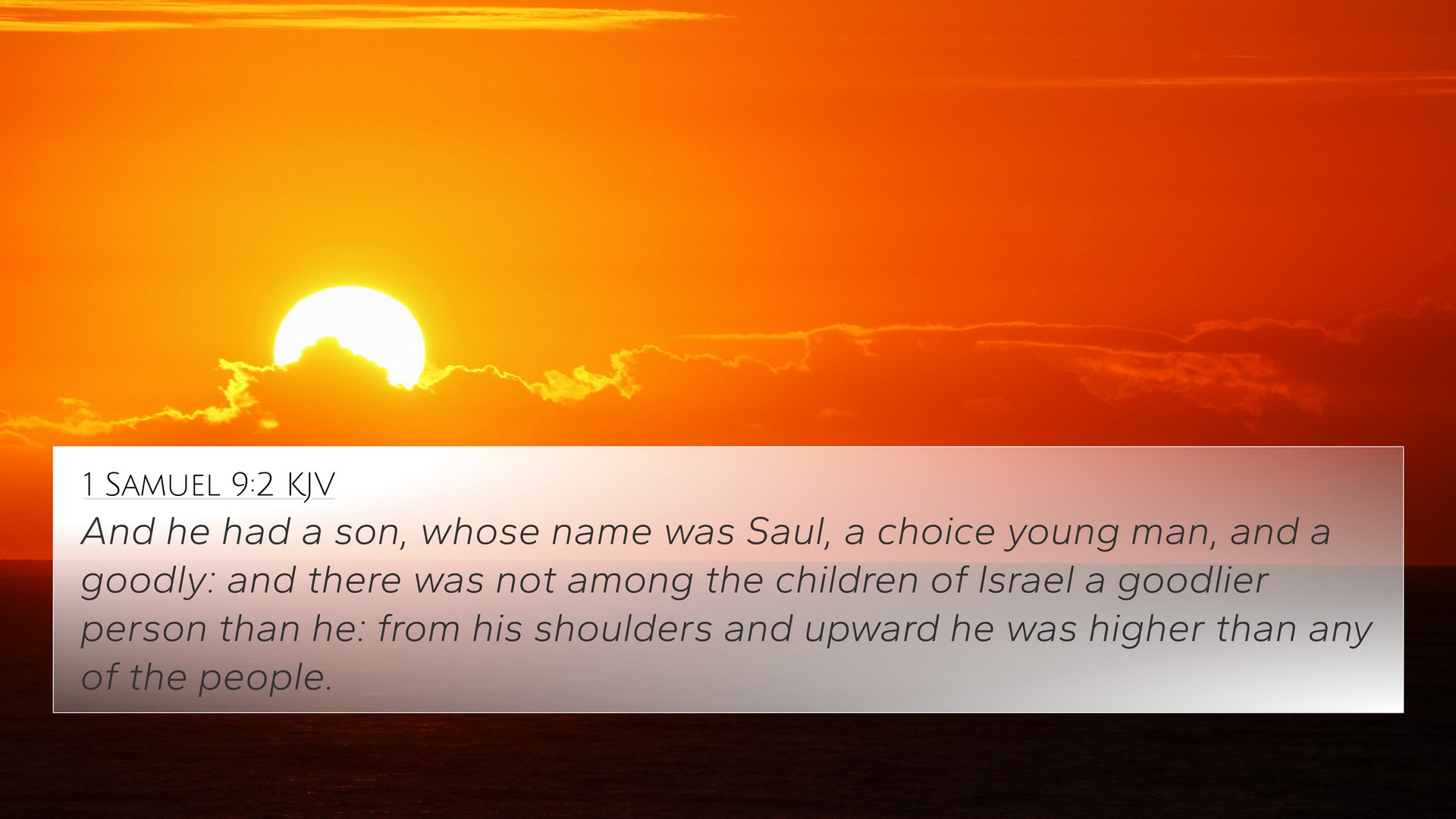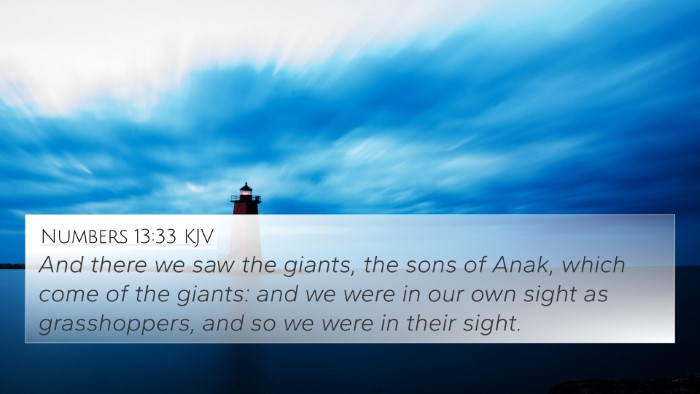Understanding 1 Samuel 9:2
1 Samuel 9:2 states:
"And he had a son, whose name was Saul, a choice young man, and a goodly: and there was not among the children of Israel a goodlier person than he: from his shoulders and upward he was higher than any of the people."
Summarized Meaning
This verse introduces Saul as a significant figure in the history of Israel. He is depicted as an impressive young man, both physically and in character. This characterization sets the stage for Saul's future role as the first king of Israel, highlighting God's choice of an unlikely leader due to his appearance and potential.
Insights from Commentators
The following insights synthesize perspectives from various public domain commentaries:
- Matthew Henry: Henry observes that Saul was distinguished not only for his stature but for being "a choice young man." He interprets Saul's selection as a reminder of how God looks at the heart rather than mere outward appearances. The emphasis on Saul's height signifies his potential stature in leadership.
- Albert Barnes: Barnes notes that Saul's physical attributes were significant in a culture where physical prowess was admired. He interprets this as an indication of the qualities that the people might seek in a leader, paralleling their expectations with God’s selection, which would unfold in the narrative.
- Adam Clarke: Clarke expands on the idea of Saul being "goodly," emphasizing both his attractiveness and his qualities as a young leader. He suggests that this greatness was purely human perception and that God's choice will eventually reveal a deeper understanding of what true leadership entails.
Cross-References and Thematic Connections
1 Samuel 9:2 connects with several other verses, exploring themes of leadership, divine selection, and the qualities valued by God and humanity:
- 1 Samuel 10:1: The anointing of Saul confirms his selection by God as leader of His people.
- 1 Samuel 16:7: God tells Samuel that He looks at the heart, not at outward appearances, drawing a contrast with how people commonly judge.
- Deuteronomy 17:15: The people are advised to choose a king from among their brothers, suggesting divine guidelines for leadership.
- 1 Chronicles 10:1-14: The account of Saul’s death reinforces the complex nature of his kingship and God’s sovereignty in Israel’s leadership.
- Acts 13:21-22: Paul recounts God selecting David as a man after His own heart, contrasting with Saul’s initial selection.
- Philippians 3:4-6: Paul, like Saul, references his impressive heritage, emphasizing the futility of relying on human credentials.
- Isaiah 53:2: Christ's physical appearance is mentioned, drawing parallels between worldly expectations of leaders and God’s chosen servant.
Connection to Wider Biblical Themes
This verse can be analyzed within the broader narratives of divine election and the search for effective leadership in the Bible. It acts as a precursor to discussions about the nature of God's promises and the eventual transition from human leaders to divine kingship seen in Christ.
As you delve into cross-referencing biblical texts, this verse exemplifies how Old Testament narratives set the foundation for understanding character and leadership qualities that God desires in His chosen leaders. Utilizing tools for Bible cross-referencing, you can further explore the connections between Saul, David, and the ultimate leader, Jesus Christ.
Benefits of Cross-Referencing
Understanding scripture through cross-references provides depth to biblical narratives, revealing how interconnected the stories and lessons are. Tools such as a bible concordance and bible cross-reference guide can assist in uncovering these links, making your study more enriching.
Conclusion
In summary, 1 Samuel 9:2 paints a vivid picture of Saul, setting the stage for the exploration of leadership in biblical history. By analyzing this verse alongside its cross-references, one can glean insights into divine choice and human expectations.
Further Study
For deeper understanding, consider how this verse and its themes connect to New Testament teachings, exploring cross-referenced themes in the Bible. This practice can enhance your sermon preparation and personal study.









